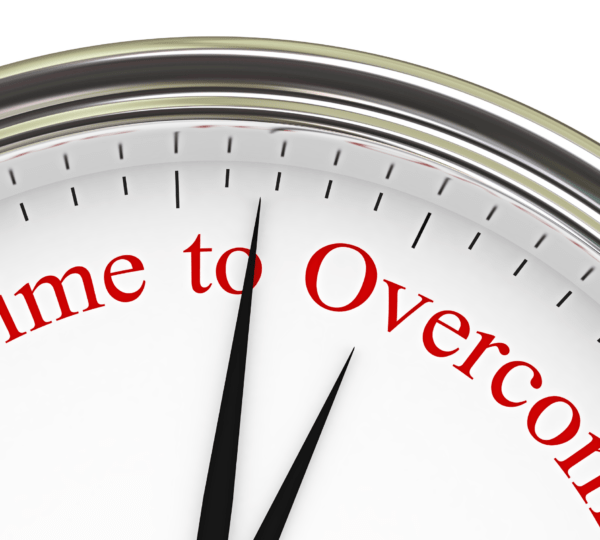
Overcoming Procrastination: Unlocking Your Full Potential
What if there were a way to break free from the cycle of procrastination and unlock your full potential? I couldn’t help overhearing the conversation of two college students while waiting for my order at the store. One was complaining to the other about how she’d been putting off her essays and other projects for weeks, despite knowing it was due in just a few days. She has been spending more time on her phone and movies. .
Her friend nodded sympathetically, “I know exactly how you feel. I’ve been doing the same thing. It’s like I know what I need to do, but I just can’t get myself to start. Every time I think about sitting down to work, I get anxious, and somehow scrolling through social media or binge-watching shows seems easier.”
Their conversation struck a chord with me. It wasn’t just students who struggled with procrastination, it is a universal challenge, affecting people from all walks of life. How many times in the past had I pushed off important tasks, telling myself, “I’ll do it later,” only to feel that creeping panic as deadlines loomed?
I couldn’t help but reflect on how familiar the scene felt as the two students continued their conversation. But as I stood there, I realized the key to unlocking our potential lies in understanding why we procrastinate and learning strategies to overcome it.
Understanding Why We Procrastinate
Procrastination isn’t just laziness or lack of discipline; it’s often rooted in psychological and emotional factors that cause us to delay tasks. Dr. Piers Steel, an expert on procrastination, notes that nearly 20% of adults are chronic procrastinators. But what is it that makes us avoid tasks even when we know the consequences?
- Fear of Failure: Often, we avoid tasks because we fear the possibility of failing. This fear can paralyze us, making us put off important work to avoid confronting the possibility of not meeting expectations.
- Perfectionism: Procrastinators often have perfectionist tendencies, which lead them to delay tasks until they feel ready to achieve a “perfect” result. Of course, perfection is rarely attainable, which makes these tasks even harder to start.
- Overwhelm: Large, complex projects can feel intimidating. The more we think about everything we have to do, the more daunting the task seems, making it easier to avoid starting altogether.
- Lack of Motivation: When we’re not personally invested in a task, it becomes difficult to summon the energy to get started. This is common with tasks that feel monotonous or disconnected from our personal goals.
- Decision Paralysis: Sometimes, the fear of making the wrong choice keeps us from making any choice at all. We spend so much time weighing options that we put off action entirely.
Why You Should Overcome Procrastination
The cycle of procrastination can hold us back from achieving our full potential, but breaking free offers tremendous benefits. Research shows that overcoming procrastination can lead to:
- Increased Productivity: Studies suggest that procrastination leads to higher levels of stress, which lowers productivity. When you overcome procrastination, you make better use of your time and finish tasks with a clear mind.
- Improved Mental Health: Chronic procrastination is linked to stress, anxiety, and even depression. By tackling tasks head-on, we reduce the mental burden of unfinished work, improving our mental well-being.
- Stronger Focus and Clarity: Completing tasks on time boosts focus, as you are no longer consumed by the pressure of unfinished work. This clarity allows you to move from one task to the next with ease.
- Enhanced Self-Esteem: Each time you complete a task, your confidence grows. Over time, this builds into a stronger sense of self-worth, as you prove to yourself that you are capable of handling challenges.
- Career Growth: In a professional setting, overcoming procrastination can lead to career advancement. Employers value timely, efficient work, and completing tasks ahead of deadlines makes you stand out as a reliable team member.
Strategies for Overcoming Procrastination
Overcoming procrastination requires practical techniques and mindset shifts that help you push past avoidance. Experts like Dr. Timothy Pychyl, a psychologist who specializes in procrastination, suggest several strategies:
- Set Clear, Achievable Goals: Break down tasks into specific, measurable steps. For example, instead of setting a goal to “write an essay,” break it into smaller steps like “outline the introduction” or “write the first draft of paragraph one.” This way, tasks feel manageable.
- Use Time Management Techniques: The Pomodoro Technique is highly recommended. It involves working in focused 25-minute intervals followed by short breaks. This method helps maintain focus and prevents burnout.
- Create an Environment for Success: Distractions like smartphones or background TV shows make procrastination easier. Create a workspace where distractions are minimized to maintain your focus on the task at hand.
- Use the ‘Two-Minute Rule’: Developed by David Allen, this rule suggests that if a task takes less than two minutes to complete, do it immediately. This simple step helps build momentum and reduces the number of small tasks that can pile up.
- Visualize the Benefits of Completing Tasks: Think about how you’ll feel once the task is done. Positive reinforcement can push you to start. Picture how light and free you’ll feel once it’s off your to-do list.
- Address the Underlying Causes: Consider whether your procrastination is rooted in fear, perfectionism, or lack of direction. Once you understand the reason, you can take steps to counteract it, whether through mindfulness techniques or therapy.
- Reward Yourself: Recognize and celebrate small victories along the way. Rewards can be as simple as a short break, a treat, or even watching a favorite show after completing a task.
- Incorporate Mindfulness Practices: Stress is one of the main drivers of procrastination. Mindfulness techniques, such as meditation or deep breathing, can help reduce anxiety and improve your focus.
- Use Accountability Partners: Sharing your goals with someone can create a sense of responsibility. Whether it’s a friend, a colleague, or a family member, having someone check in on your progress can encourage you to stay on track.
- Be Kind to Yourself: Perfectionism and procrastination often go hand in hand. Remember, it’s okay to make mistakes. Be patient with yourself and remember that progress, not perfection, is the goal.
Expert Opinion
A 2020 study published in the Journal of Personality and Social Psychology highlights the fact that procrastination is more than just poor time management—it’s linked to emotion regulation problems. Dr. Fuschia Sirois, a leading researcher on procrastination, suggests that instead of berating ourselves, we should focus on self-compassion, as this has been shown to reduce procrastination tendencies. When we approach tasks with kindness, we reduce the shame and guilt that fuel avoidance.
Similarly, behavioral scientist Dan Ariely emphasizes that the “immediacy effect” plays a role in procrastination, meaning we’re drawn to short-term gratification even when we know it might cause long-term pain. This understanding can help us shift our focus and prioritize long-term rewards over immediate distractions.
Conclusion
Breaking free from procrastination is not just about getting things done; it’s about unlocking your full potential. By understanding the reasons behind procrastination and applying practical strategies, you can transform the way you approach tasks. As you gain momentum, you’ll not only improve your productivity, but also your mental well-being and confidence. Remember, the journey to overcoming procrastination is a process, but with each step forward, you move closer to achieving your goals.
Citation:
- Duckworth, A. L., & Quinn, P. D. (2000). Self-regulation and academic performance. Psychological bulletin, 126(2), 251-277.
- Steel, Piers. The Procrastination Equation. HarperCollins Publishers, 2010.
- Sirois, Fuschia M. “Procrastination and Emotion Regulation.” Journal of Personality and Social Psychology, vol. 119, no. 3, 2020, pp. 385-402.\
- Ariely, Dan. “Immediacy Effect and Procrastination.”
- “Pomodoro Technique.












